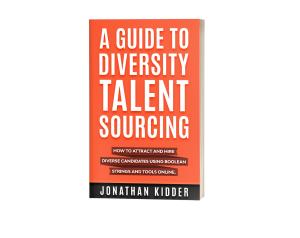
To become an ally in your talent sourcing field, it is important to be intentional, advocate for diversity, create a supportive community, and ensure diverse voices are heard. Recognize that everyone has a unique background and perspective. You might ask yourself – how can I make a difference or impact in the talent acquisition space? Well, you can make an impact and here’s how to get started.
Coming from a point of privilege:
If you come from a privileged background, you can leverage your privilege to support and empower underrepresented communities in various ways. Here are some suggestions:
Listen and learn: Take the time to listen to the stories and experiences of underrepresented communities. Educate yourself on their history, culture, and current challenges. This can help you understand the issues they face and how you can best support them.
Amplify their voices: Use your platform and privilege to amplify the voices of underrepresented communities. Share their stories, promote their work, and create space for them to speak and be heard.
Support financially: Financial support is often critical for underrepresented communities to gain access to resources and opportunities. Consider donating to organizations that support these communities or investing in businesses run by members of underrepresented communities.
Take action: Use your privilege to advocate for change. Speak out against injustice and discrimination, and support policies that promote equity and inclusion. You can also volunteer your time and skills to organizations that work to support underrepresented communities.
Be an ally: Stand up for and support underrepresented communities in your everyday life. This can include challenging discriminatory attitudes or behaviors, being an active listener, and being an ally in the fight for justice and equality.
Remember that leveraging your privilege is not about being a savior or hero, but rather about using your position of power and privilege to support and empower others. It is important to approach this work with humility, openness, and a willingness to learn and grow.
How to become an ally in talent sourcing:
Becoming an ally for a marginalized community takes intentional effort and a willingness to learn and grow. Here are some tips on how to become an ally:
Educate yourself: Take the time to educate yourself about the experiences and challenges faced by the marginalized community you want to support. Read books, articles, and other resources written by members of that community. Listen to their stories and experiences.
Listen and learn: Listen to the experiences and perspectives of members of the marginalized community without interrupting or invalidating their experiences. Acknowledge the privilege you hold and use it to amplify their voices.
Take action: Take concrete steps to support the marginalized community. This can include advocating for policies that promote equity and inclusion, using your resources and platform to support their work, or volunteering your time to organizations that support their cause.
Use your privilege: Use your privilege to advocate for marginalized communities in spaces where they may not have access. Challenge discriminatory attitudes or behavior and create space for marginalized voices to be heard.
Self-reflect: Continuously reflect on your own biases and actions, and be willing to make changes to better support marginalized communities. Be open to feedback and willing to learn and grow.
Speaking up when you hear or see something:
Speaking up when you hear something that is wrong in your workplace can be a difficult but important step in promoting a healthy and respectful work environment. Here are some tips for how to do so effectively:
Be prepared: Before speaking up, take the time to gather your thoughts and identify the specific issue you want to address. Consider what you want to say and how you want to say it.
Choose the right time and place: Look for a time and place where you can speak privately with the person or people involved. Be respectful and avoid calling them out publicly or in front of others.
Be specific: When speaking up, be specific about the behavior or action that is causing harm or discomfort. Use concrete examples and avoid generalizations.
Use “I” statements: Use “I” statements to express how the behavior or action is affecting you personally. This can help avoid making the other person feel defensive or attacked.
Listen actively: Listen to the response of the person you are speaking with and be open to their perspective. Avoid interrupting or dismissing their point of view.
Follow up: If the behavior or action continues, follow up with the person or escalate the issue to a manager or HR representative. Be persistent and advocate for a resolution that is fair and respectful to all parties involved.
Remember that speaking up when you hear something that is wrong in your workplace is important for promoting a respectful and inclusive work environment. It may be uncomfortable at first, but with practice, you can develop the skills to effectively address issues and create positive change in your workplace.
Create an affinity group at your company:
Promotes inclusivity: Affinity groups help create an inclusive work environment where employees feel valued, supported, and respected. It provides a sense of community for employees who may otherwise feel isolated or marginalized.
Fosters understanding and awareness: Affinity groups help foster understanding and awareness of diverse perspectives and experiences. It provides opportunities for employees to learn about and appreciate different cultures and identities, which can help break down stereotypes and biases.
Builds employee engagement: Affinity groups can improve employee engagement and job satisfaction by providing opportunities for employees to connect with colleagues who share similar backgrounds or experiences. This can lead to increased motivation, loyalty, and productivity.
Drives innovation: Affinity groups can drive innovation and creativity by bringing together employees with diverse perspectives and experiences. This can lead to new ideas and approaches that can benefit the company and its customers.
Supports talent retention: Affinity groups can help support talent retention by providing a sense of community and support for employees. This can lead to higher job satisfaction, better work-life balance, and a more positive workplace culture.
I recommend reading my book: A Guide to Diversity Talent Sourcing←

Recommended Reading:
Interview with Gershon Goren – The Future of AI in Recruiting
Doing business development to gain more recruiting clients
The ABC’s of Recruiting: How to preclose a candidate before the offer stage
- AI Search Will Transform Talent Sourcing Forever - January 10, 2025
- Build an AI Sourcing Assistant using ChatGPT 4 - January 10, 2025
- Top Recruiting Leaders to Follow in 2025 - January 8, 2025
